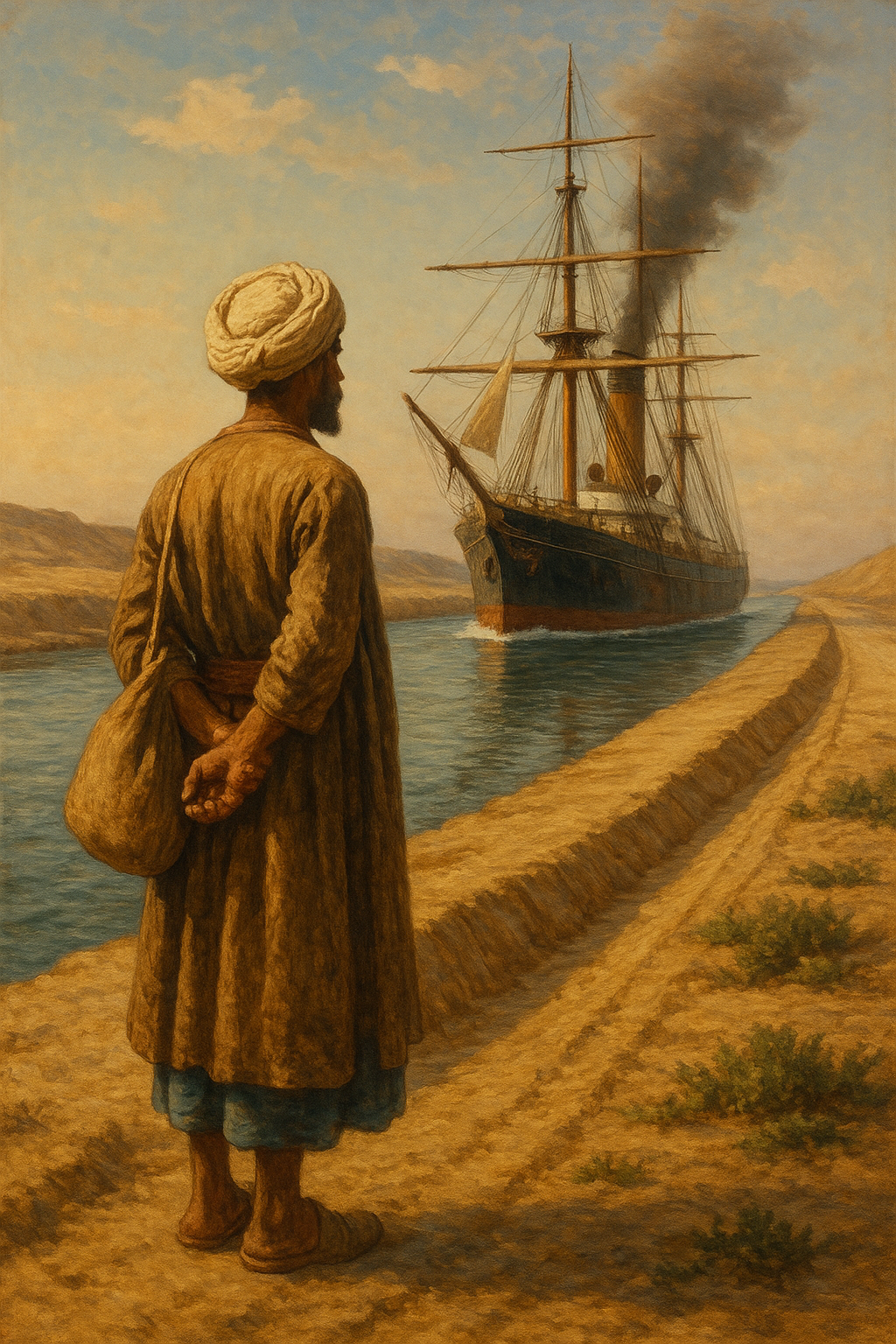Lesson 2: Imperialism in Africa (Industry and Imperialism)
🌍 New Involvement in Africa
In the 1800s, European countries wanted more raw materials like gold, rubber, and cotton to help their factories. Africa had many of these natural resources, so Europeans became very interested in Africa.
They didn’t just take materials — they also interfered with African cultures. They brought their languages, religions, and ways of life. Many Africans were forced to give up their traditions. Europeans also made governments and borders in Africa without asking the local people.
🚢 One important project was the Suez Canal in Egypt. It helped ships travel faster between Europe and Asia. The British wanted to control it, so they took control of Egypt in the late 1800s.
📖 Story: Imagine a farmer in Egypt who once traveled by land to bring goods to the Red Sea. After the canal was built, he watched as big ships from Europe passed by every day. His land was no longer just a farm—it became part of a global trade route.
🏁 The Scramble for Africa
European countries began to race to take land in Africa. This was called the Scramble for Africa. At the Berlin Conference in 1884, leaders from Europe met — but no Africans were invited! They made rules about dividing Africa.
The land was not shared equally or fairly. Europeans wanted power, and they often fought over it. One example was the Boer War between the British and Dutch settlers (Boers) in South Africa. The British won and took control of the land.
📖 Story: During the Boer War, a young African boy named Thabo had to move when his village was caught in the fighting. His family didn't understand the reason for the war, but their lives changed forever.
🛡️ African Resistance
Not all Africans gave up easily. Many groups fought back.
The Zulu people in Southern Africa were strong warriors. Their leader, Shaka Zulu, built a powerful army. The Zulus fought the British, and even though they lost in the end, they showed great strength.
In Ethiopia, Emperor Menelik II made a smart plan. He bought modern weapons and trained his army. When Italy tried to take over Ethiopia in 1896, the Ethiopians won the Battle of Adwa. Ethiopia stayed independent!
📖 Story: After the victory at Adwa, the people of Ethiopia celebrated. One girl, named Aida, danced with her family in the streets. She would later tell her children, “We were never a colony.”
